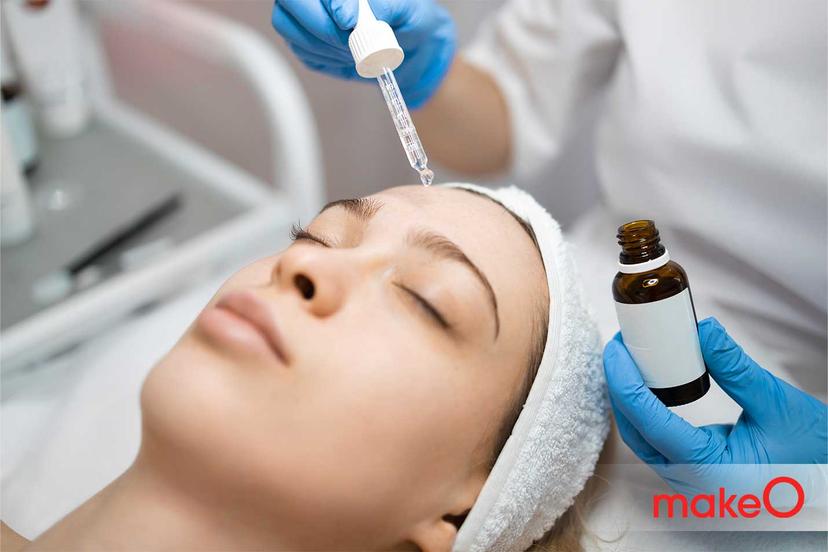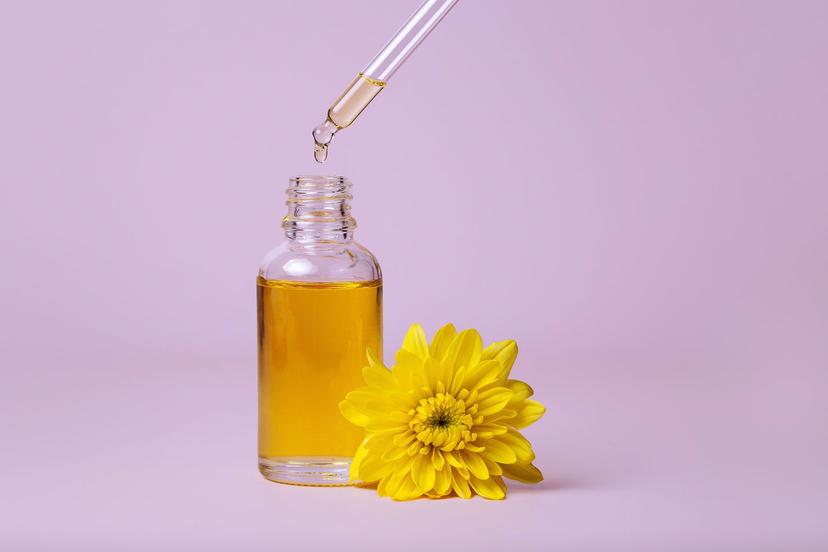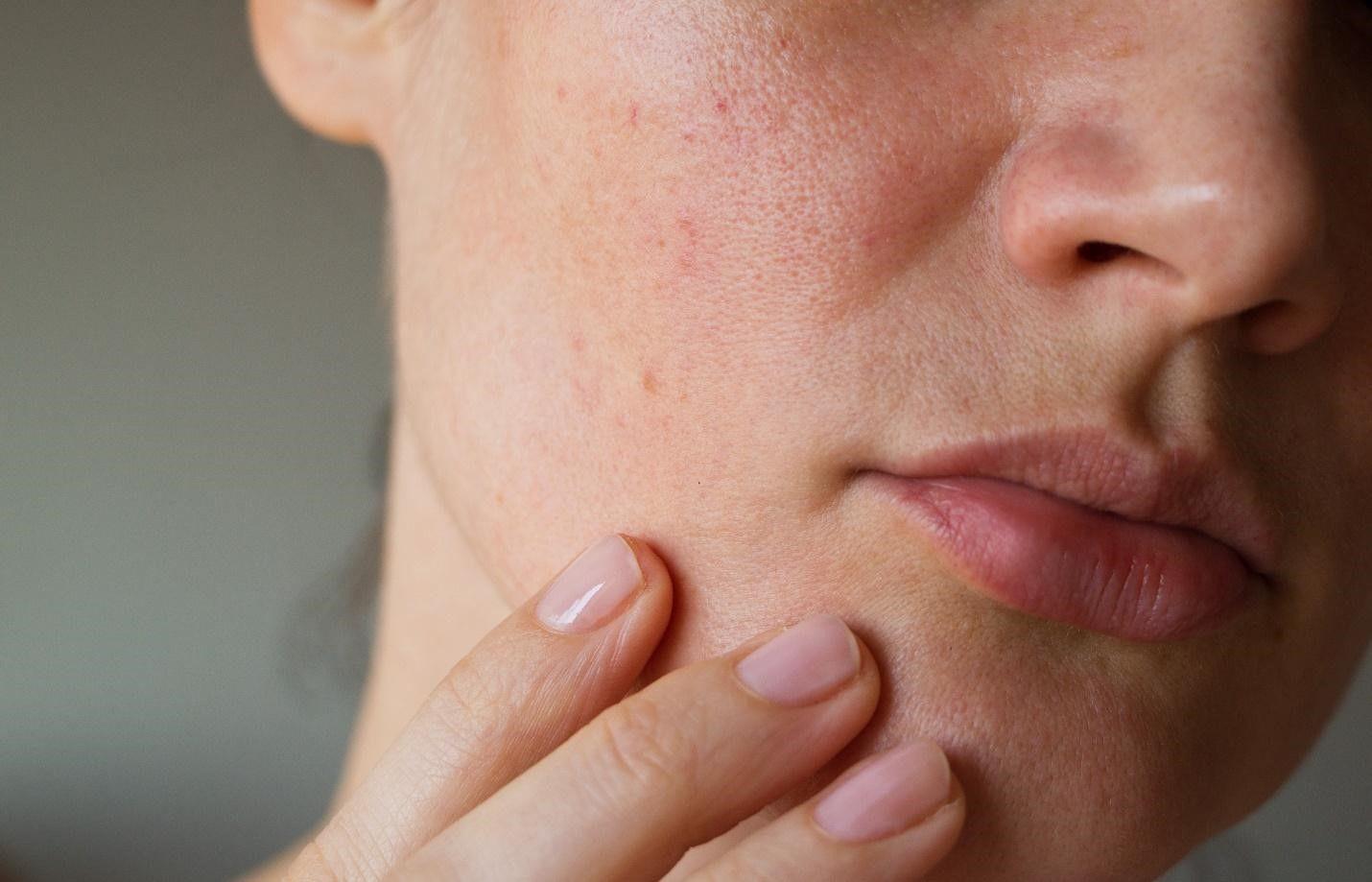MakeO blog
In the skincare universe, a few core terms are thrown out very easily – oily skin, dry skin, combination skin, and acne-prone skin.
Are we missing something?
Yes, we are missing the term 'sensitive skin', which is one of the most common skin concerns today. At this point, you may even think that you have sensitive skin.
But you're not sure what causes sensitive skin and how to take care of it, right? Are there any ways to keep sensitive skin symptoms under wrap while getting acne/pimple treatment at home?
Don't worry. We come bearing answers to your questions.
What is sensitive skin?
Sensitive skin is more of a finding rather than a medical diagnosis. And it is exactly for this reason that it can be difficult to know if you have sensitive skin.
Usually, sensitive skin is characterized by the type of skin which isn't able to tolerate harsh conditions, chemicals, products, or even a few food items. For example, getting red marks on the skin when you go out in the sun or dryness after using certain skincare products.
Oops!
When compared to other skin types, sensitive skin is more reactive. It gets easily irritated by elements like wind, heat, sun, and cold. Not just this, but there are certain other triggers too, including lack of sleep, hormonal imbalance, and air pollution.
When exposed to such elements, your skin may experience a burning sensation, itching, or feel uncomfortable.
Causes of sensitive skin
Sensitive skin can be a real problem. If you keep wondering why your skin hurts, one of these could be the cause.
1. Dermatitis
Dermatitis refers to the inflammation caused when your skin gets exposed to an irritant. This irritant could be anything, even a fragrance in a laundry detergent.
When it comes in contact with your skin, it results in minor damage. What next? Your body tries protecting itself with an immune response, which is somewhat similar to what the body experiences during allergy.
2. Allergy
Another cause of skin inflammation and the consequent sensitivity is allergy. When your skin comes in contact with the allergen, your body protects itself by releasing T cells. This can cause itching and redness.
3. Acne
If you never experienced acne in your teenage years, believe us; you’re lucky!
Acne causes pimples on the skin and is one of the most common reasons to see a dermatologist. When experiencing acne scars, make sure to consult a skin expert.
4. Dry skin
You don’t even need bigger causes. The dry winter air is enough to cause skin sensitivity. Experiencing excessively dry skin can put you at an even bigger risk due to itching and redness.
Other causes
Besides everything we talked about, a few more causes lead to sensitive skin. As we age, our skin loses moisture and becomes cracked and dry, causing sensitivity. Wait, there’s more to it!
Certain medications and hormonal imbalances can also affect your skin.
Symptoms of sensitive skin
How do you know your skin is sensitive? There are a few common symptoms that will point out sensitive skin.
1. Your skin is reactive
Do you notice a lot of redness?
That's a clear indication of sensitive skin! Redness appears in the form of red bumps and a red rash. Usually, the redness goes away itself or with some minor treatment.
2. Your skin is usually itchy
If your skin is usually tight and itchy, especially after using harsh products, that's another sign of sensitive skin.
You may especially notice this itching when the air is dry and cold. But let us tell you, scratching your skin will do more harm than good in such cases. Consult a skin expert to know about other ways of stopping the itching.
3. Your skin gets rashes often
Does your skin develop rashes very often, especially after using certain lotions and creams? That's yet another sign of sensitive skin.
Rashes can be uncomfortable, unsightly, and stubborn. Most importantly, if you get rashes due to an allergic reaction, it's even more serious than sensitive skin.
4. Your skin is not fond of the sun
Peeling and burning of the skin when stepping out in the sun also indicates sensitivity. For this reason, it's important to wear sunscreen, especially on your face.
How to keep sensitive skin symptoms under wrap?
Redness, itching, peeling skin, burning sensation – you're aware of all the symptoms of sensitive skin. But how do you take care of your sensitive skin to avoid these symptoms?
Let's find out.
1. Make sunscreen your bae
Like we said, heat can be a cruel enemy, causing skin peeling and redness. So make sure to apply a good sunscreen every time you step out.
If you're particularly looking for sensitive skin care, use a broad-spectrum sunscreen that protects against both UVA and UVB rays.
2. Go lightweight
You don't wear heavy clothes during summer, right?
So why would you make your skin go through the same thing, especially when you have sensitive skin? Use makeup and skincare products that are light in weight and super hydrating.
3. Cleanse thoroughly
Besides cleaning sweat, dirt, and oiliness of the face, the right cleanser will also refresh and brighten your skin.
If you have sensitive skin, you must opt for a gentle and soap-free cleanser that is specially designed for it.
4. Never skip the moisturizer
You may think of skipping the moisturizer if your skin is oily or sweaty, but that's where you go wrong.
It's important to follow cleansing with moisturizing.
5. Be careful when buying new products
A lot of skincare products may seem tempting on supermarket shelves, but you need to avoid that temptation.
You must select face packs, face washes, and moisturizers very carefully. Make sure the product you buy is free from chemicals, such as artificial colours and parabens.
6. Improve your bath routine
Hot baths are often recommended for relaxing the skin. Sadly, they can also strip skin's natural oils, causing irritation and even dehydration.
For this reason, it is best to avoid hot water baths and use lukewarm water instead. Similarly, you must protect your skin from sudden changes in temperature.
7. Use raw milk

Our grandmoms have always pointed out the benefits of raw milk for the skin.
But why is that?
This is because milk contains skin-nourishing ingredients, anti-inflammatory agents, and moisturizing properties that soothe the skin, relieving itching and dryness.
8. Eat a healthy diet
It's no news that what you eat shows up on your skin. So, people with sensitive skin should consume a diet full of natural foods instead of processed food.
- Fruits and vegetables, such as blueberries, leafy greens, and tomatoes, are rich in antioxidants, and polyphenols are beneficial for your skin.
- Consume nuts like almonds and walnuts.
- Switch to healthy fat sources, including avocado oil and extra virgin olive oil.
- Eat orange-colored foods, such as pumpkin, tropical fruits, and carrots, which are rich in vitamin A.
Final thoughts
Sensitive skin can be a serious problem, especially if not taken care of.
Good news!
If you follow the above-mentioned tips, you can take care of your sensitive skin as well as acne scars. But if you have reached a point where natural remedies and preventions are not helping, it's best to consult a skin expert regarding facial for sensitive skin.
If you're also looking for expert advice and customized solutions to take care of your sensitive skin, get in touch with makeO skinnsi. We are a team of young, dedicated doctors who aim to make skincare accessible to all.
skinnsi offers at-home treatments for all skin types using advanced technology and equipment. Explore our website today to get the best treatments.
It's time to manage your skin sensitivity sensibly!
Related articles

Anti-Ageing Face Oils: Unveiling the 10 Best Facial Oils for Youthful Skin

5 Common Mistakes to Avoid When Using a Face Roller

Is Aloe vera effective for acne? Find out

5 Side Effects of Hair Removal Creams That You Must Know

